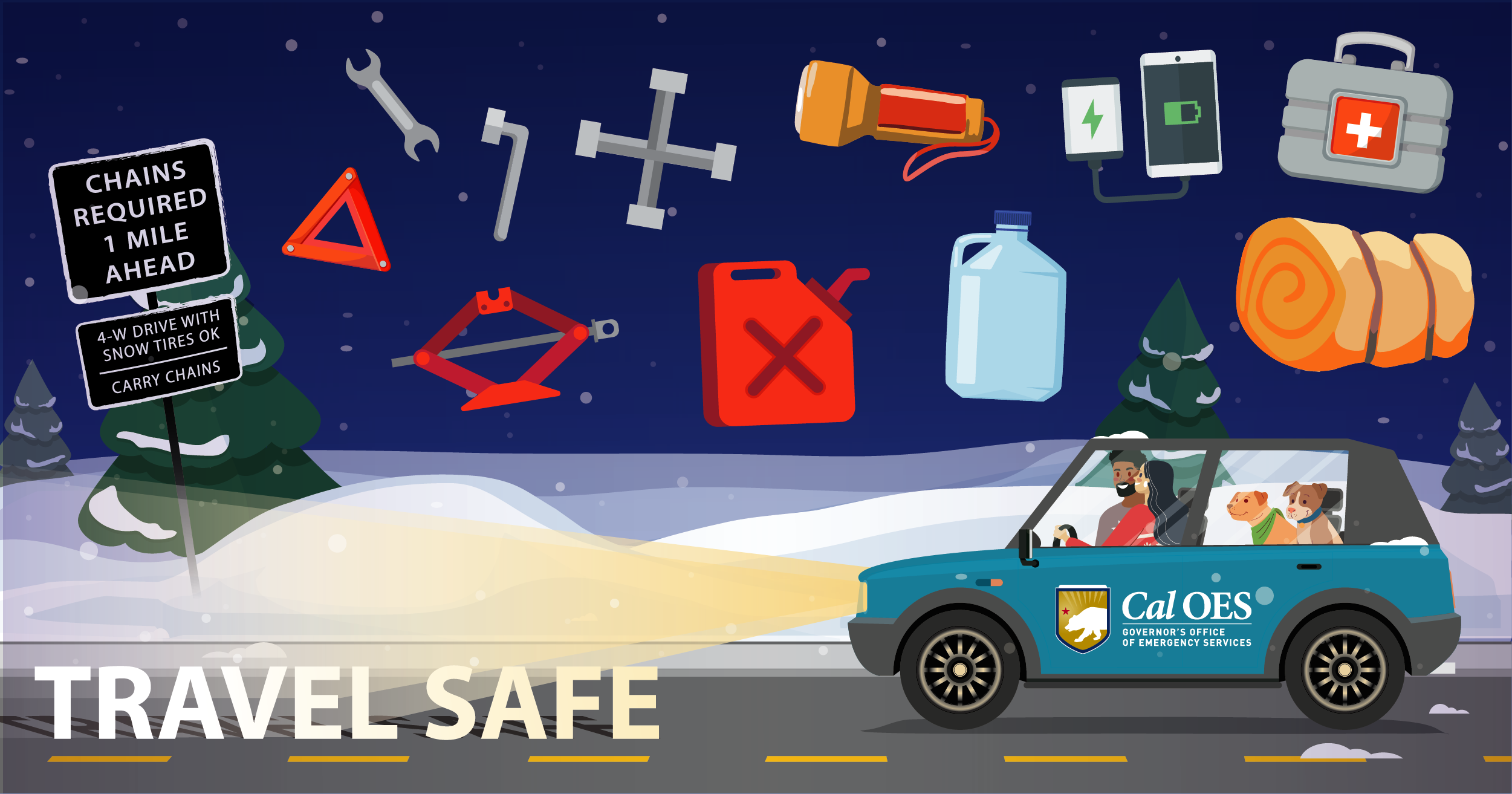Travel spikes from late November to mid-January when families gather for the Holiday season.
Follow these safety tips to ensure you and your family remain safe when traveling to visit loved ones this year.
Traveling by car? Be prepared.
If traveling by car this holiday season, be sure your vehicle is in good running condition, you have plenty of rest and are prepared for any emergency.
Stay safe on the roads over the holidays and every day:
-
- Prepare your car for winter and keep an emergency preparedness kit with you
- Be weather wise, know the weather forecast during your travel
- Learn the weather/climate risks risk for the area you are travel to and know what to do before, during and after such events
- Stay off the road during and after a winter storm.
- During the winter keep the proper emergency winter road tools in the truck of your automobile

Emergency Kit for the Car
In case you are stranded, keep an emergency supply kit in your car with these automobile extras:
-
- Jumper cables
- Flares or reflective triangle
- Ice scraper
- Car cell phone charger
- Blanket
- Map
- Cat litter or sand (for better tire traction)
Prepare Your Car for Emergencies
Have a mechanic check the following on your car before an emergency:
-
- Antifreeze levels
- Battery and ignition system
- Brakes
- Exhaust system
- Fuel and air filters
- Heater and defroster
- Lights and flashing hazard lights
- Oil
- Thermostat
- Windshield wiper equipment and washer fluid level
Car Safety Tips
-
- Keep your gas tank full in case of evacuation or power outages. A full tank will also keep the fuel line from freezing.
- Install good winter tires and make sure they have enough tread, or any chains or studs required in your local area.
- Do not drive through flooded areas. Six inches of water can cause a vehicle to lose control or possibly stall. A foot of water will float many cars.
- Be aware of areas where floodwaters have receded. Roads may have weakened and could collapse under the weight of a car.
- If a power line falls on your car you are at risk of electrical shock. Stay inside until a trained person removes the wire.
- If it becomes hard to control the car, pull over, stop the car and set the parking brake.
- If the emergency could affect the stability of the roadway avoid overpasses, bridges, power lines, signs and other hazards.
For more resources and tips to keep you and your family safe, visit Ready California.
